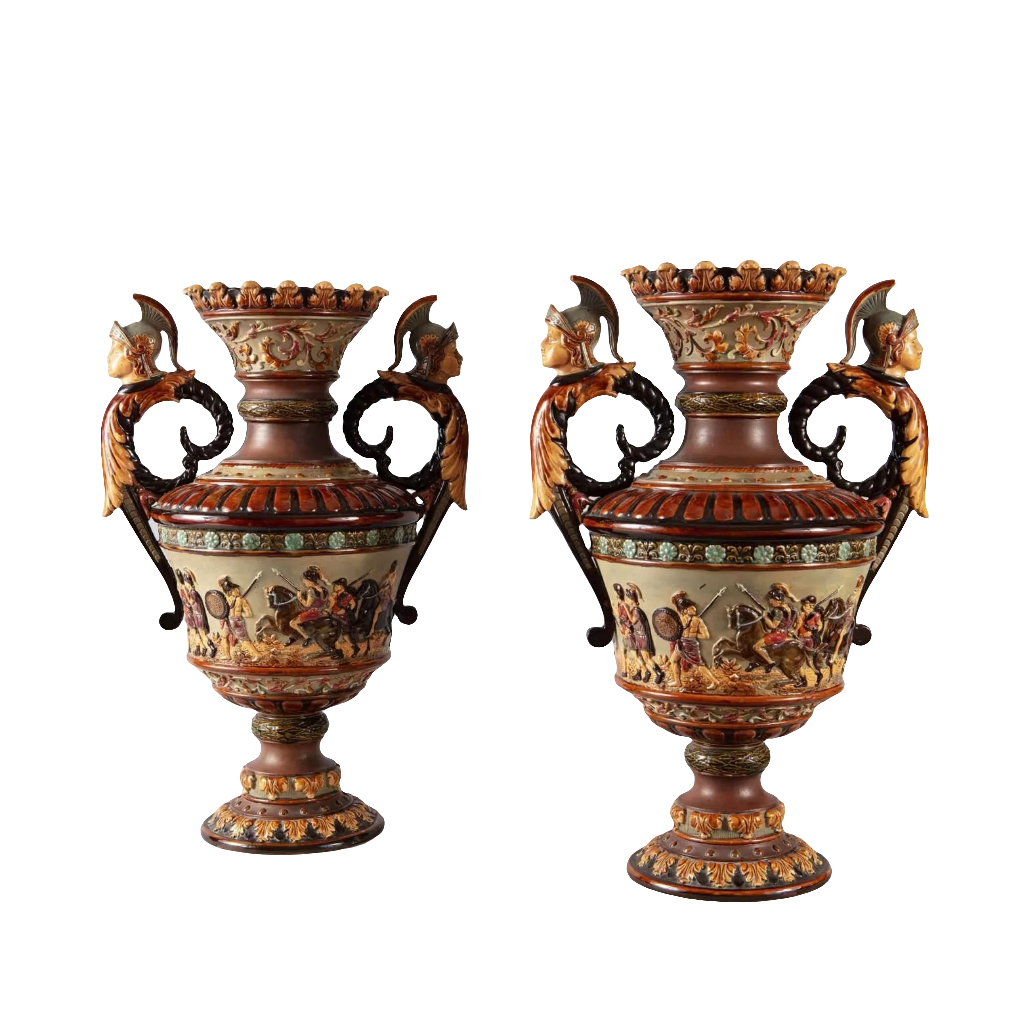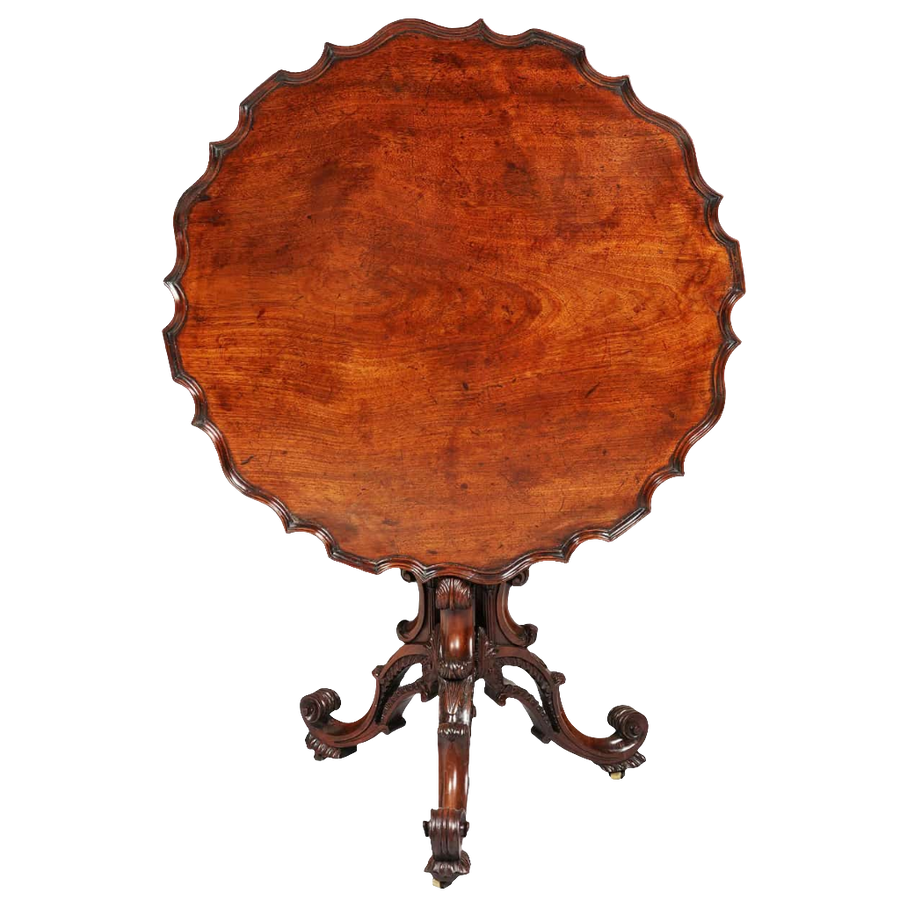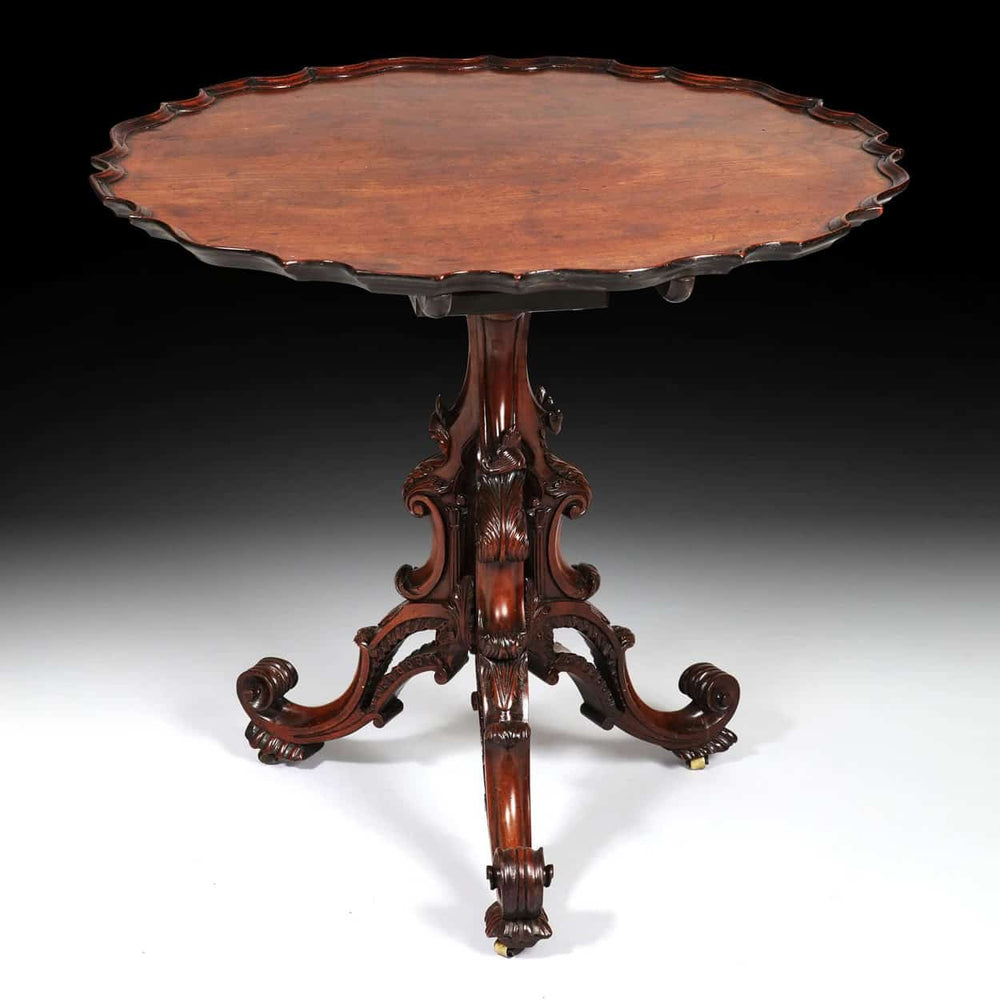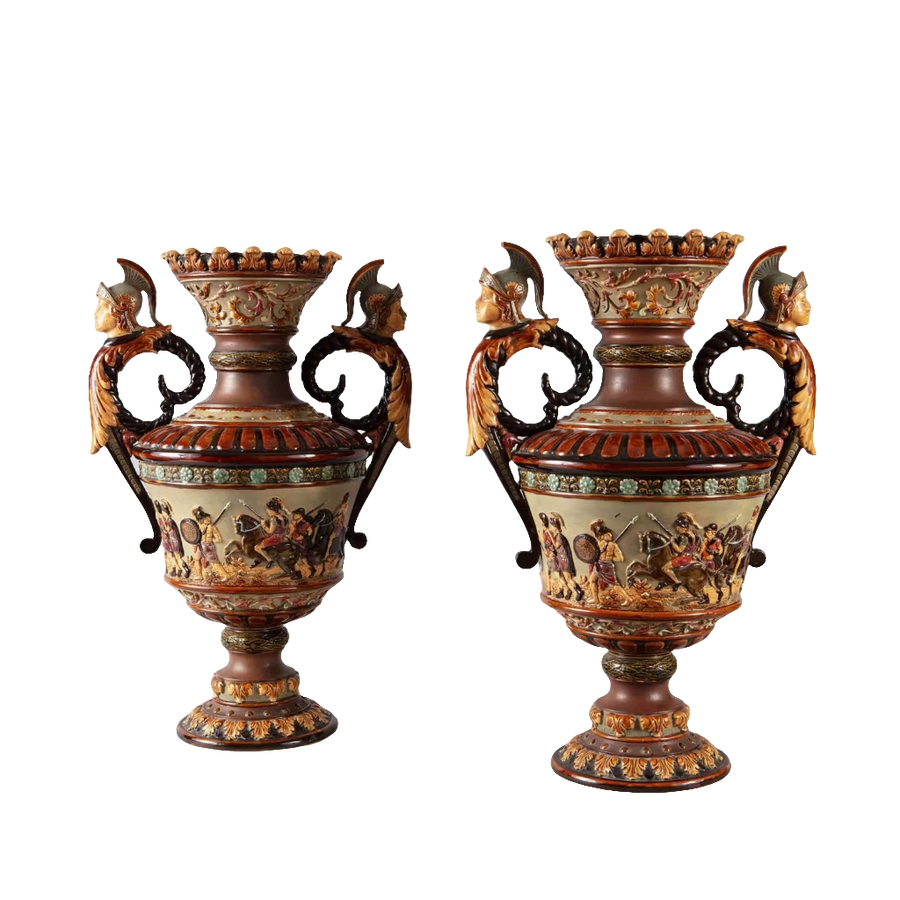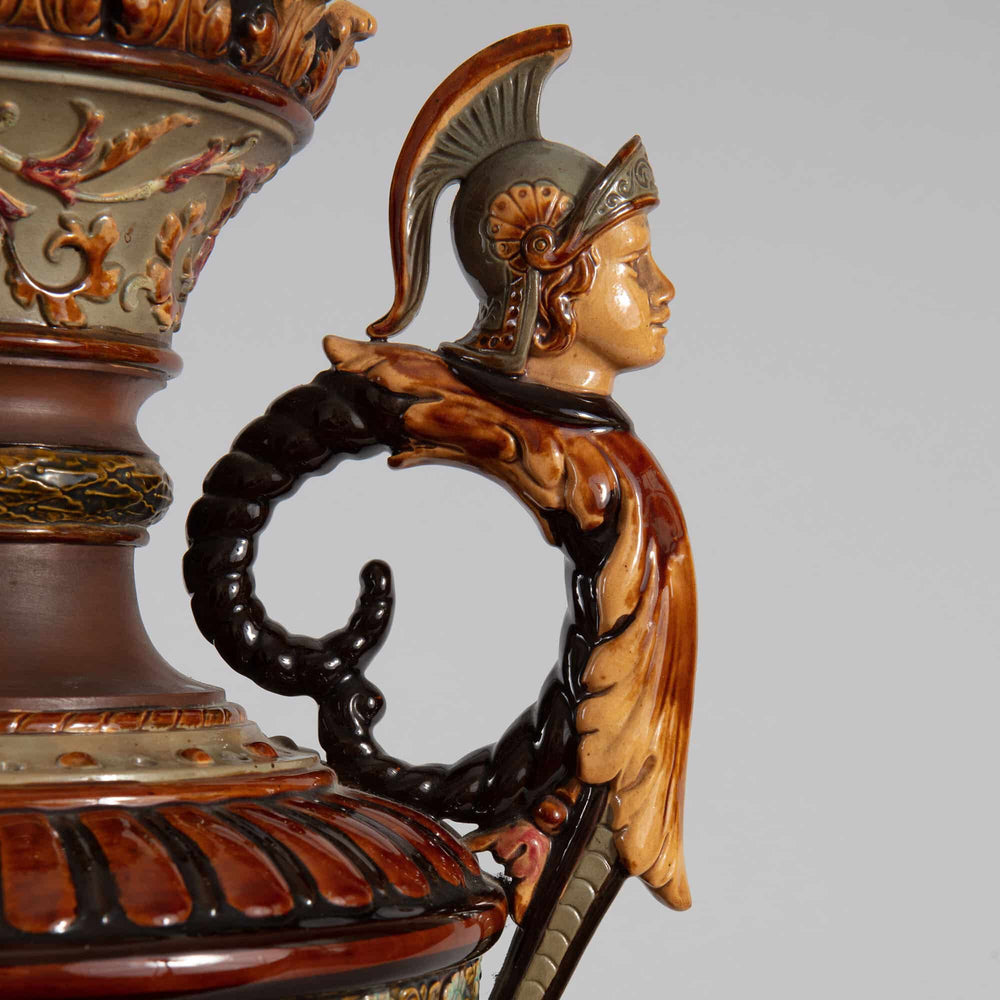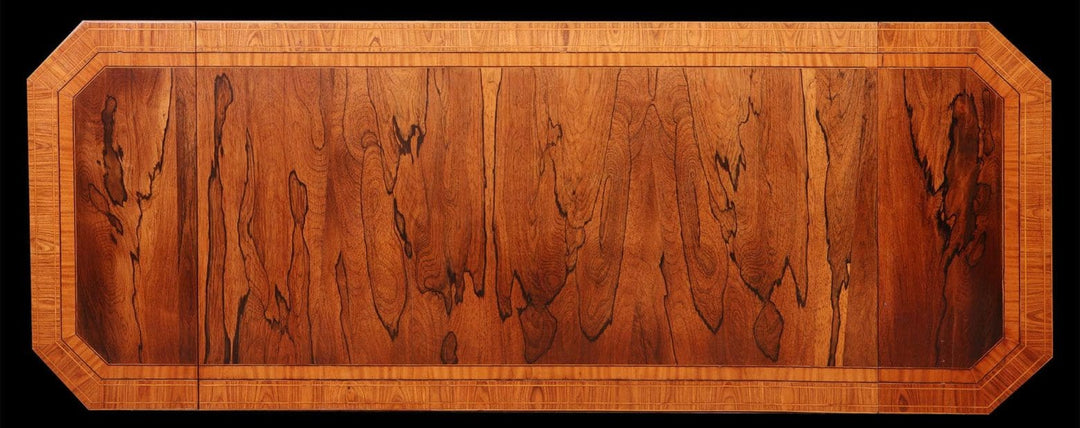Wilhelm Schiller & Son, founded in the mid-19th century in Bodenbach (today part of the Czech Republic), was one of Europe’s most celebrated ceramic manufacturers. Established by Wilhelm Schiller in the 1820s, the company quickly gained international recognition for its artistry, craftsmanship, and technical innovation in majolica, stoneware, and earthenware.
Innovation and Artistry
From the outset, the firm distinguished itself with its vibrant majolica and bold designs that spanned styles from Neo-Renaissance to Art Nouveau. Renowned for advanced glazing techniques and a deep understanding of ceramic materials, Wilhelm Schiller & Son produced works that combined aesthetic refinement with technical mastery.
A Diverse Range
The company’s production encompassed vases, jardinières, wall plaques, and architectural ceramics, often drawing on influences from classical antiquity, Eastern motifs, and contemporary European movements. This stylistic versatility ensured broad appeal, with their ceramics becoming highly sought after across Europe and further afield.
International Acclaim
Wilhelm Schiller & Son’s creations were exhibited at major international expositions, winning awards that cemented its reputation as a leader in 19th-century decorative arts. Today, their pieces are prized by collectors and museums for both their historical significance and exceptional craftsmanship.
Lasting Legacy
Though the firm endured the upheavals of two World Wars and shifting markets, its influence on European ceramics remains profound. Celebrated for their beauty, creativity, and technical innovation, Wilhelm Schiller & Son’s works stand as enduring treasures of the decorative arts and a testament to the golden age of European ceramics.
Wilhelm Schiller & Son, founded in the mid-19th century in Bodenbach (today part of the Czech Republic), was one of Europe’s most celebrated ceramic manufacturers. Established by Wilhelm Schiller in the 1820s, the company quickly gained international recognition for its artistry, craftsmanship, and technical innovation in majolica, stoneware, and earthenware.
Innovation and Artistry
From the outset, the firm distinguished itself with its vibrant majolica and bold designs that spanned styles from Neo-Renaissance to Art Nouveau. Renowned for advanced glazing techniques and a deep understanding of ceramic materials, Wilhelm Schiller & Son produced works that combined aesthetic refinement with technical mastery.
A Diverse Range
The company’s production encompassed vases, jardinières, wall plaques, and architectural ceramics, often drawing on influences from classical antiquity, Eastern motifs, and contemporary European movements. This stylistic versatility ensured broad appeal, with their ceramics becoming highly sought after across Europe and further afield.
International Acclaim
Wilhelm Schiller & Son’s creations were exhibited at major international expositions, winning awards that cemented its reputation as a leader in 19th-century decorative arts. Today, their pieces are prized by collectors and museums for both their historical significance and exceptional craftsmanship.
Lasting Legacy
Though the firm endured the upheavals of two World Wars and shifting markets, its influence on European ceramics remains profound. Celebrated for their beauty, creativity, and technical innovation, Wilhelm Schiller & Son’s works stand as enduring treasures of the decorative arts and a testament to the golden age of European ceramics.
Read More
